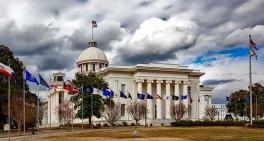High court sides with ex-athletes in NCAA compensation case
U.S. Court News
The Supreme Court decided unanimously Monday that the NCAA can’t enforce rules limiting education-related benefits — like computers and paid internships — that colleges offer to student athletes.
The case doesn’t decide whether students can be paid salaries. Instead, the ruling will help determine whether schools decide to offer athletes tens of thousands of dollars in those benefits for things including tutoring, study abroad programs and graduate scholarships.
The high court agreed with a group of former college athletes that NCAA limits on the education-related benefits that colleges can offer athletes who play Division I basketball and football are unenforceable.
Justice Neil Gorsuch wrote for the court that the NCAA sought “immunity from the normal operation of the antitrust laws,” which the court declined to grant.
Under current NCAA rules, students cannot be paid, and the scholarship money colleges can offer is capped at the cost of attending the school. The NCAA had defended its rules as necessary to preserve the amateur nature of college sports.
But the former athletes who brought the case, including former West Virginia football player Shawne Alston, argued that the NCAA’s rules on education-related compensation were unfair and violate federal antitrust law designed to promote competition. The Supreme Court upheld a lower court ruling barring the NCAA from enforcing those rules.
As a result of the ruling, the NCAA itself can’t bar schools from sweetening their offers to Division I basketball and football players with additional education-related benefits. But individual athletic conferences can still set limits if they choose.
Related listings
-
Iowa’s high court stops lawsuit over farm runoff pollution
U.S. Court News 06/18/2021A sharply divided Iowa Supreme Court on Friday stopped a lawsuit aimed at reducing the flow of fertilizer and hog farm waste into the state’s river and streams, finding that limiting pollution from farms was a political matter and not one for t...
-
British lawyer Karim Khan sworn in as ICC’s chief prosecutor
U.S. Court News 06/16/2021British lawyer Karim Khan was sworn in Wednesday as the new chief prosecutor for the International Criminal Court, pledging to reach out to nations that are not members of the court in his quest to end impunity for atrocities and to try to hold trial...
-
Justices consider Harvard case on race in college admissions
U.S. Court News 06/14/2021With abortion and guns already on the agenda, the conservative-dominated Supreme Court is considering adding a third blockbuster issue — whether to ban consideration of race in college admissions. The justices could say as soon as Monday whethe...

Any contracts or any transactions can go awry at any time
We know your business means a lot to you and want to understand all the aspects of your business so that we can help you in the best ways possible. We don’t discriminate depending on the size of your company. Our mission statement is to represent all business owners and entrepreneurs by navigating them through the rough waters of business litigation and guiding them to success.
We are attorneys who want to make sure we understand your business objectives and goals before we start providing you with legal counsel individualized to your business. We know what it means to be dedicated to your business. After all, we are a business as well. And just like you, we want to provide the best service we can to our clients.
Any contracts or any transactions can go awry at any time. Sometimes, making important business decisions without legal help from business attorneys could cost you your business.We don’t want you or your business to be misconstrued by anyone. Our attorneys make sure that we communicate with you often to make sure we are giving you the legal guidance you need at all times. We make sure we are responsive in a timely-manner with every single one of our clients to help them identify risks and prevent legal battles before they arise.




